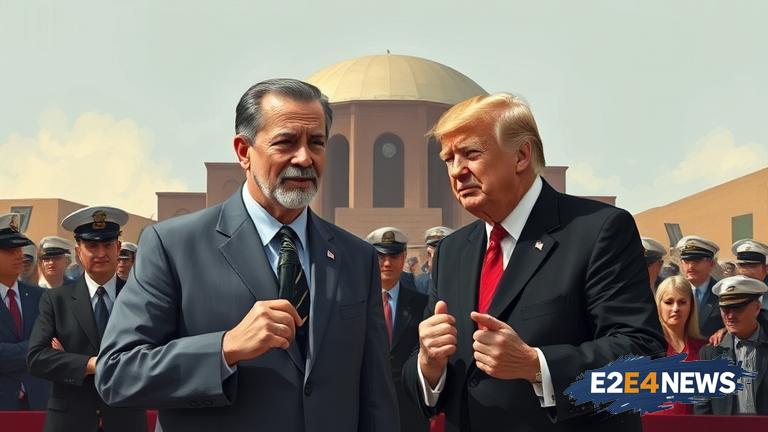Iran has made it clear that it will not engage in any future talks with the US unless it acknowledges and takes responsibility for the attacks on its nuclear sites. The Iranian government has been vocal about its demands for accountability, citing the need for a guarantee that such attacks will not happen again in the future. The US has been accused of being behind the attacks, which have caused significant damage to Iran’s nuclear program. Iran’s nuclear sites have been the target of several attacks in recent years, with the most notable being the Stuxnet worm attack in 2010. The attack, which was widely attributed to the US and Israel, caused significant damage to Iran’s nuclear centrifuges. Since then, there have been several other attacks, including a drone strike on a nuclear facility in 2020. Iran has consistently denied that its nuclear program is for military purposes, despite allegations from the US and other Western countries. The Iranian government has maintained that its nuclear program is for peaceful purposes, such as generating electricity and producing medical isotopes. However, the US and its allies have remained skeptical, and have imposed strict sanctions on Iran in an effort to curb its nuclear ambitions. The sanctions have had a significant impact on Iran’s economy, causing widespread poverty and unemployment. Despite this, Iran has continued to develop its nuclear program, and has made significant progress in recent years. The US has attempted to negotiate with Iran on several occasions, but the talks have been unsuccessful. The US has demanded that Iran dismantle its nuclear program, while Iran has insisted that it has the right to develop its nuclear capabilities for peaceful purposes. The issue of accountability for the attacks on Iran’s nuclear sites has become a major sticking point in the negotiations. Iran has made it clear that it will not engage in any future talks unless the US acknowledges its role in the attacks and takes steps to prevent them from happening again. The US has so far refused to do so, citing concerns about Iran’s nuclear intentions. The impasse has led to a significant increase in tensions between the two countries, with some analysts warning of the possibility of a military conflict. The situation has been further complicated by the involvement of other countries, including Israel and Saudi Arabia, which have their own interests in the region. The Israeli government has been particularly vocal about its opposition to Iran’s nuclear program, and has threatened to take military action to prevent it from developing a nuclear bomb. The Saudi government has also been critical of Iran’s nuclear ambitions, and has accused it of attempting to dominate the region. Despite the challenges, there are still some who believe that a negotiated settlement is possible. They argue that the US and Iran have a common interest in preventing the spread of nuclear weapons in the region, and that a deal could be reached if both sides are willing to compromise. However, the issue of accountability for the attacks on Iran’s nuclear sites remains a major obstacle, and it is unclear whether the US will be willing to meet Iran’s demands. The situation remains volatile, and it is likely that the issue will continue to be a major point of contention in the region for some time to come. The Iranian government has made it clear that it will not back down on the issue, and that it will continue to develop its nuclear program unless its demands are met. The US and its allies will need to decide whether to continue to pursue a policy of confrontation, or to seek a negotiated settlement that addresses Iran’s concerns. The outcome is far from certain, and it is likely that the situation will continue to evolve in the coming months and years. The international community will be watching closely, as the situation has significant implications for regional and global security. The UN has called for calm and restraint, and has urged all parties to seek a peaceful resolution to the crisis. The EU has also been involved in efforts to mediate a settlement, and has called for a return to negotiations. However, the issue of accountability for the attacks on Iran’s nuclear sites remains a major challenge, and it is unclear whether a deal can be reached. The situation is complex and multifaceted, and it will require a significant effort from all parties to resolve. The stakes are high, and the consequences of failure could be severe. The world will be watching as the situation continues to unfold, and it is likely that the issue will remain a major point of contention for some time to come.





